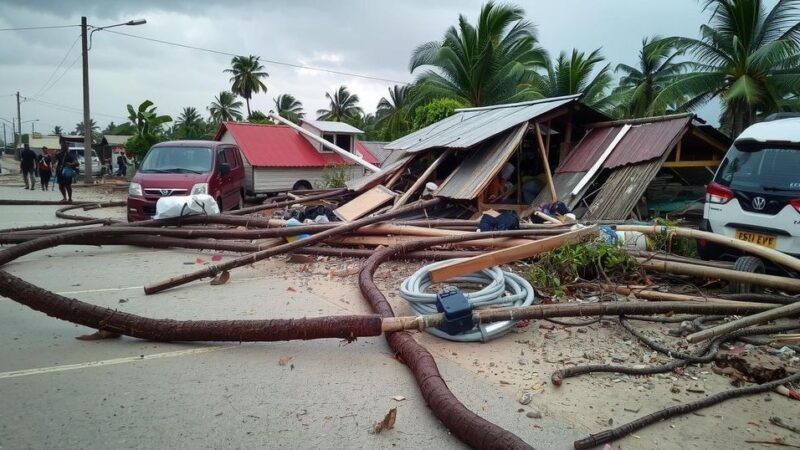G20 leaders have gathered in Brazil to discuss climate change, conflicts in the Middle East and Ukraine, and the implications of Donald Trump’s electoral victory. With Brazilian President Lula emphasizing poverty and climate action, the summit faces challenges in achieving consensus amid geopolitical tensions. Key discussions will focus on climate finance for developing nations and the contentious geopolitical landscape defined by Biden’s policies and the absence of certain leaders.
Leaders from the G20 commenced their arrival in Brazil for a crucial summit aimed at addressing long-standing tensions related to climate change, the ongoing conflicts in the Middle East and Ukraine, and the implications of Donald Trump’s potential return to US politics. Set in Rio de Janeiro, the summit is anticipated to be overshadowed by divisions among member nations regarding these critical issues. Brazilian President Luiz Inácio Lula da Silva welcomed international officials at the modern art museum, delivering the opening address as he emphasized key topics such as hunger, climate action, and wealth taxation. With President Joe Biden present at his final summit amidst challenges from global leaders, particularly Chinese President Xi Jinping, there appears to be a pressing need for consensus on the conflicts dividing G20 members. Notably, Biden’s recent decision permitting Ukraine to utilize long-range missiles against Russian targets may shift European allies’ perspectives. Furthermore, the G20 leaders face an urgent obligation to revitalize stalled UN climate negotiations in Azerbaijan, with Secretary-General Antonio Guterres urging the bloc, responsible for a significant portion of global emissions, to demonstrate leadership in establishing a financial framework aimed at aiding developing nations. The backdrop of this summit includes heightened security measures following an attempted bombing at Brazil’s Supreme Court. President Biden’s farewell diplomatic tour aims to solidify his legacy in combating climate change, notwithstanding concerns over a possible return of Trump to office. Lula, prioritizing discussions on poverty, initiated a “Global Alliance against Hunger and Poverty” while advocating for increased taxation on wealthy individuals. However, objections emerged from the Argentinian delegation, creating uncertainty around a consensus agreement. In summary, the G20 summit in Brazil stands as a pivotal moment for global dialogue around pressing issues, albeit with a challenging climate and geopolitical backdrop that could hinder progression toward coherent solutions.
The G20 summit, consisting of major economies, convenes to tackle pressing global issues, including climate change, wars in Ukraine and the Middle East, and economic disparities. As climate discussions have reached an impasse, leaders are expected to engage in negotiations focused on raising substantial funds for developing nations to address the impacts of climate change. Additionally, the political landscape is turbulent as Donald Trump’s re-election alters the dynamics within the summit. The historical context of these discussions reflects the growing recognition of the necessity to address inequities among nations, particularly between wealthier countries and those struggling with poverty and conflict.
In conclusion, the G20 summit in Rio de Janeiro serves as a critical platform for addressing significant global challenges amid political tensions and differing priorities among member states. While substantive agreements may prove elusive, the focus on climate change, poverty alleviation, and geopolitical conflicts illustrates the complexities facing world leaders. By striving for shared goals, particularly in reducing emissions and enhancing financial support for vulnerable nations, the summit highlights the pressing need for collaboration in tackling these unprecedented global issues.
Original Source: www.france24.com





